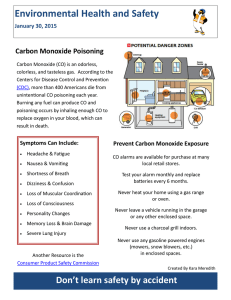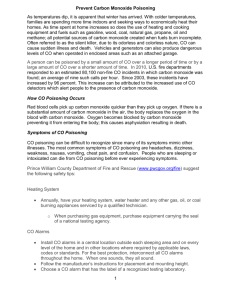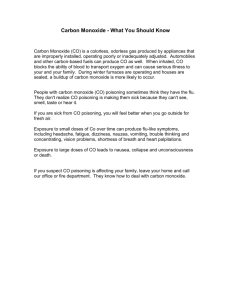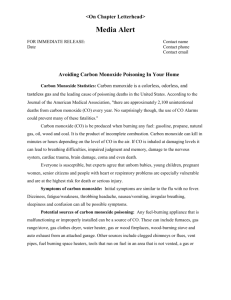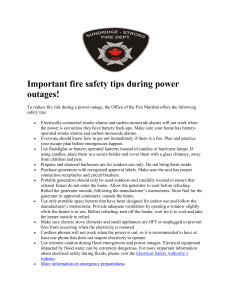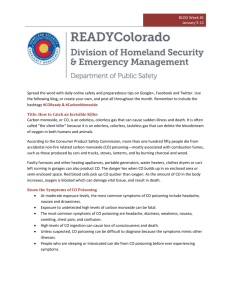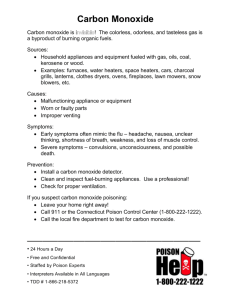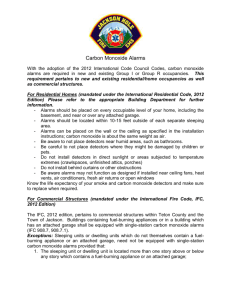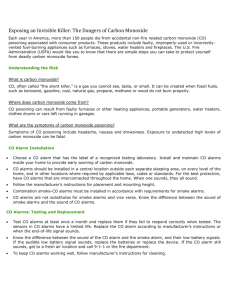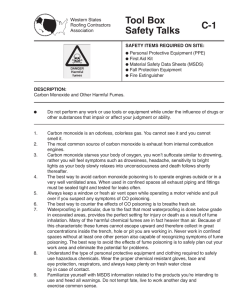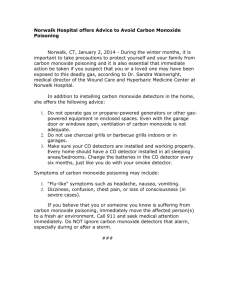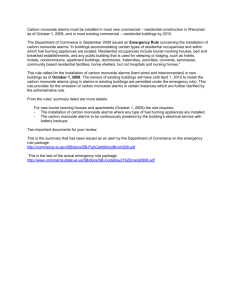CO Toolkit OpEd CO Dangers
advertisement
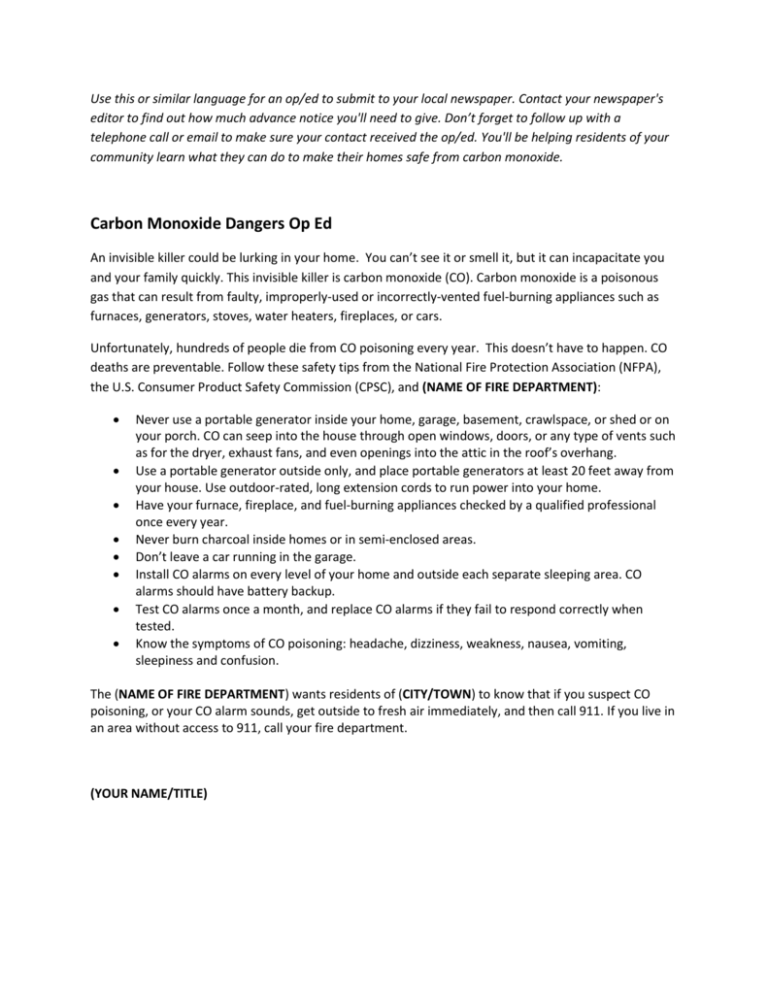
Use this or similar language for an op/ed to submit to your local newspaper. Contact your newspaper's editor to find out how much advance notice you'll need to give. Don’t forget to follow up with a telephone call or email to make sure your contact received the op/ed. You'll be helping residents of your community learn what they can do to make their homes safe from carbon monoxide. Carbon Monoxide Dangers Op Ed An invisible killer could be lurking in your home. You can’t see it or smell it, but it can incapacitate you and your family quickly. This invisible killer is carbon monoxide (CO). Carbon monoxide is a poisonous gas that can result from faulty, improperly-used or incorrectly-vented fuel-burning appliances such as furnaces, generators, stoves, water heaters, fireplaces, or cars. Unfortunately, hundreds of people die from CO poisoning every year. This doesn’t have to happen. CO deaths are preventable. Follow these safety tips from the National Fire Protection Association (NFPA), the U.S. Consumer Product Safety Commission (CPSC), and (NAME OF FIRE DEPARTMENT): Never use a portable generator inside your home, garage, basement, crawlspace, or shed or on your porch. CO can seep into the house through open windows, doors, or any type of vents such as for the dryer, exhaust fans, and even openings into the attic in the roof’s overhang. Use a portable generator outside only, and place portable generators at least 20 feet away from your house. Use outdoor-rated, long extension cords to run power into your home. Have your furnace, fireplace, and fuel-burning appliances checked by a qualified professional once every year. Never burn charcoal inside homes or in semi-enclosed areas. Don’t leave a car running in the garage. Install CO alarms on every level of your home and outside each separate sleeping area. CO alarms should have battery backup. Test CO alarms once a month, and replace CO alarms if they fail to respond correctly when tested. Know the symptoms of CO poisoning: headache, dizziness, weakness, nausea, vomiting, sleepiness and confusion. The (NAME OF FIRE DEPARTMENT) wants residents of (CITY/TOWN) to know that if you suspect CO poisoning, or your CO alarm sounds, get outside to fresh air immediately, and then call 911. If you live in an area without access to 911, call your fire department. (YOUR NAME/TITLE)
